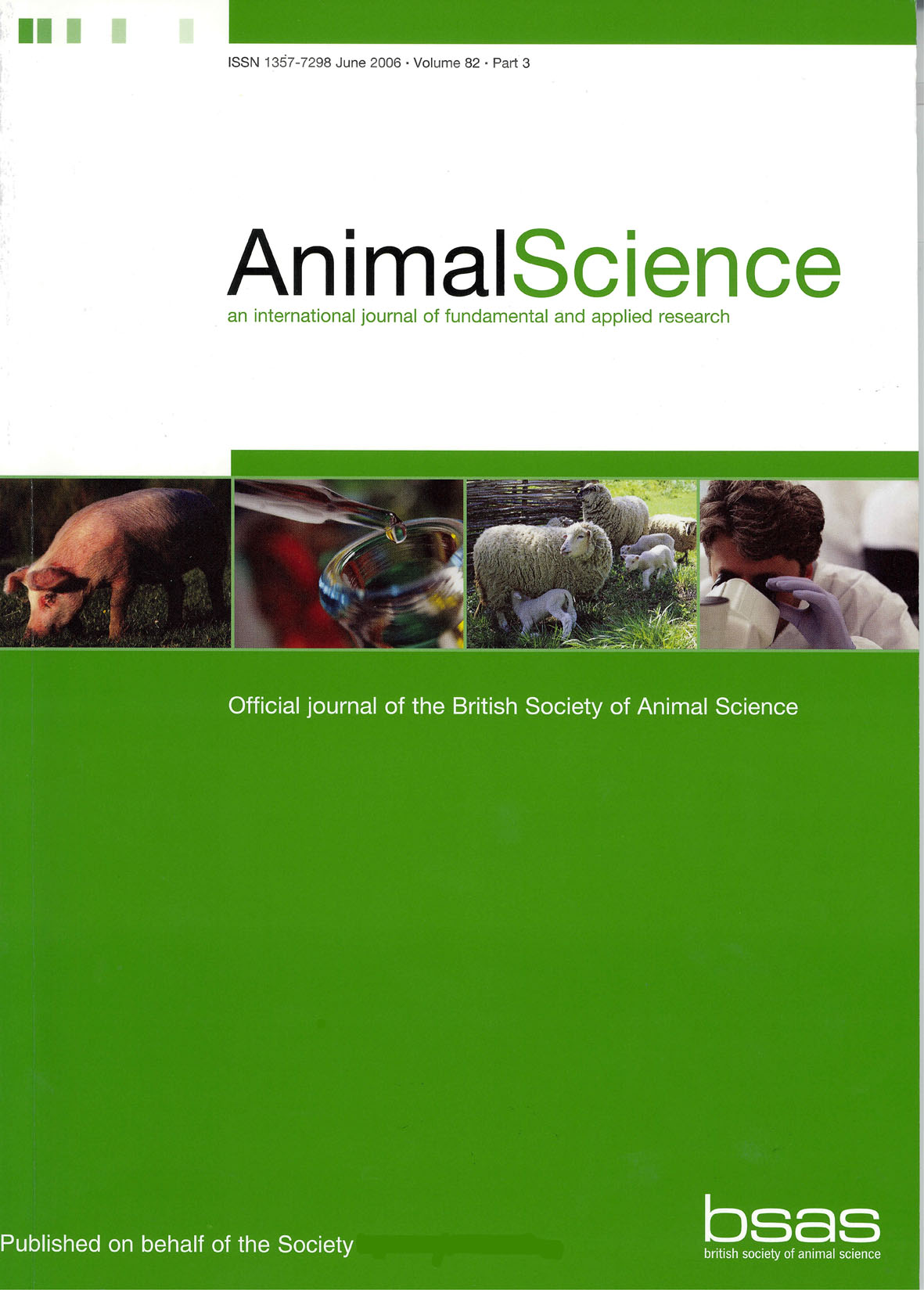Article contents
Genetic components of carcass and meat quality traits in Meishan and Large White pigs and their reciprocal crosses
Published online by Cambridge University Press: 02 September 2010
Abstract
The prospect that genes from the Chinese Meishan pig will be used to improve reproductive performance of European pigs requires that the Meishan is evaluated for traits of economic importance and the genetics of any breed effects investigated. Entire male and female pigs of four genotypes; purebred Meishan (MS) and Large White (LW) pigs and both reciprocal Fl crossbred genotypes (MS ♂ × LW ♀and LW ♂ × MS ♀), were fed ad libitum and slaughtered at about 70 kg. After slaughter, carcass weight, dimensions and conformation were recorded and fat depths at the shoulder, mid back and loin were measured on the carcass, together with fat depths and eye muscle dimensions recorded on a section cut at the last rib position. Drip loss, muscle reflectance and pH were measured and subjective assessments of fat firmness, fat separation, muscle marbling and muscle colour were made. Genotypic means and genetic crossbreeding effects (direct additive and heterosis effects and maternal additive effects) were estimated using restricted maximum likelihood procedures. When compared with the LW, MS carcasses had a similar killing-out proportion but were shorter with a poorer conformation. MS carcasses had substantially greater fat depths and reduced eye muscle dimensions in comparison with the LW. Differences between genotypes for fat depths and muscle dimensions were largely controlled by direct additive gene action, there was little evidence of direct heterosis and hence Fl crosses were intermediate between the purebreds. Significant genotype × sex interaction meant that genotypic differences for these traits were much greater in females than in males. Significant direct additive genetic differences between female genotypes were found for fat firmness, fat separation and drip loss, but these effects may in part have been a consequence of subcutaneous fat depth differences between genotypes. The degree of marbling was greater in MS females than in females of the other three genotypes and these genotypic differences did not seem to be associated with subcutaneous fat depth. Muscle from MS males was darker in colour with a lower reflectance than that from LW males. Genotype × sex interaction was such that genotypic differences for meat and fat quality traits differed between sexes.
- Type
- Research Article
- Information
- Copyright
- Copyright © British Society of Animal Science 1992
References
- 7
- Cited by


